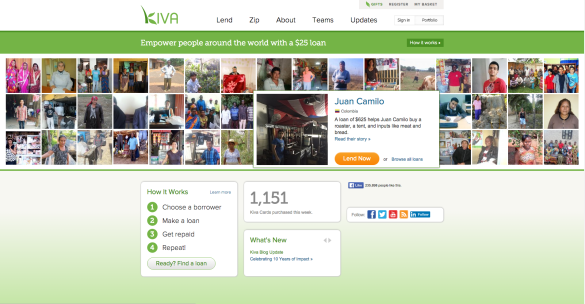
By Linh Nguyen, Staff Writer
Spanish teacher Jim Diecidue incorporates the organization, Kiva, into a class project to help people in developing countries and to teach students about the lives of others and their communities.
“We have a unit that we do in AP Spanish about global challenges and part of that unit is economic challenges,” said Diecidue. “We focus not only on the challenges but also on some of the solutions in the world to help people with those economic challenges who are in those situations that are vulnerable.”
Kiva is an organization that connects people from third world countries in need of a small loan to people who wish to help. For example, students from the United States can lend money to those in developing Spanish speaking countries to improve their situation.
to people who wish to help. For example, students from the United States can lend money to those in developing Spanish speaking countries to improve their situation.
Students were put into groups and were asked to go on the Kiva website. There, they look through all the potential options for helping individuals in Spanish-speaking countries. Afterwards, each group represented their potential donees. The class then participated in voting for which group they wished to donate money to. Donations were asked for voluntarily, however students were generous.
“Just making it a real world experience and giving students the opportunity to donate towards the project that received the most votes made it more interesting and connected students to real people that they could see; they could hear their stories and see their stories and see their needs and feel like they’re doing something even if it was a small donation, something that helps someone else,” said Jim Diecidue.
Diecidue plans on continuing this project in the future. Since the students’ donations are paid back, the money will be recycled each year , allowing the class to make a bigger difference every year.
this project in the future. Since the students’ donations are paid back, the money will be recycled each year , allowing the class to make a bigger difference every year.
“I want to encourage others to donate to Kiva as well, because I feel like it’s so interesting how like you can give to someone and eventually be given back and the cycle sort of continues , like when you do a good deed and it goes a long way,” said Jeanie Pham (’16), a contributor to the project.
, like when you do a good deed and it goes a long way,” said Jeanie Pham (’16), a contributor to the project.





